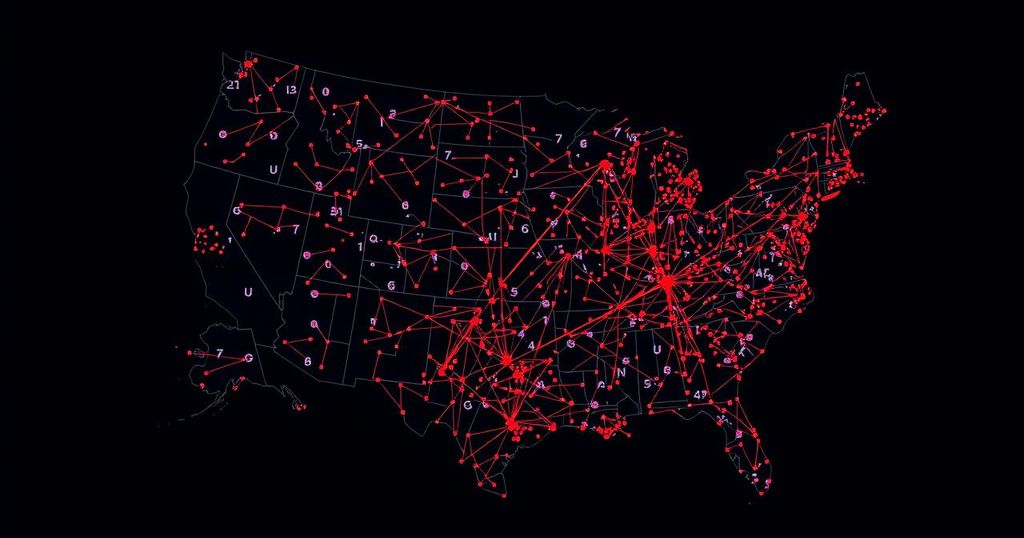Heightened Foreign Threats to U.S. Elections: An Urgent Call for Vigilance

Foreign interference in the U.S. election is accelerating, with Russia, China, and Iran employing various tactics to manipulate political discourse and undermine voter confidence. Recent reports reveal hacking incidents, fabricated videos, and potential post-election unrest. Intelligence officials emphasize the security of the electoral system while recognizing the threats posed by disinformation and cyberattacks.
Recent developments indicate a marked increase in foreign threats to the integrity of the U.S. electoral process. In the past week, it has come to light that Russia, China, and Iran are intensifying their efforts to interfere in American politics as the nation approaches the presidential election. Intelligence officials and security analysts have observed a surge in the tactics utilized by these adversaries, reinforcing earlier predictions about the vulnerabilities within the U.S. election infrastructure. Despite assurances from officials that the U.S. election system remains secure against foreign manipulation on a scale that could sway election results, these adversaries have resorted to employing disinformation campaigns aimed at creating divisions and undermining confidence among American voters. Reports have emerged detailing various incidents of interference, including hacked communications from a presidential candidate, fabricated videos aimed at discrediting candidates, and warnings of potential unrest following Election Day. Among the nations involved, Russia stands out as the most active and sophisticated orchestrator of election interference. Utilizing state-controlled media and disinformation tactics, it aims to manipulate public perception and polarize American voters on contentious issues that serve its strategic interests. Noteworthy instances include the creation of misleading content attacking Vice President Kamala Harris and efforts to finance pro-Russian narratives through American influencers. Iran’s involvement has similarly been characterized by aggressive cyber operations. This year, Iranian hackers have been implicated in efforts to compromise the communications of officials associated with the Trump campaign, reflecting the nation’s strategic opposition to the former administration. Furthermore, intelligence assessments suggest Iran may attempt to incite protests post-election, exacerbating societal divisions. China, while perceived as taking a more neutral approach in the current election, has nonetheless engaged in extensive hacking activities targeting a wide range of individuals within the American political landscape, suggesting a broader agenda beyond mere electoral influence. Reports indicate that threats from state-sponsored hackers have increasingly turned to personal communications and sensitive data related to electoral candidates. As the U.S. gears up for the upcoming election, it is crucial for officials, technology companies, and cybersecurity experts to remain vigilant and proactive in countering these threats. By addressing the vulnerabilities exposed in previous election cycles, there is a concerted effort to shield the democratic process from external manipulation and disinformation, fostering a more secure electoral environment for American voters.
The current landscape of foreign interference in U.S. elections has been shaped by lessons learned from previous elections where disinformation and cyberattacks posed significant risks. The attention on Russia, China, and Iran arises from a history of prior interference attempts, particularly during the 2016 and 2020 elections, which prompted a reevaluation of how threats are acknowledged and countered. U.S. intelligence agencies, in light of these past experiences, have heightened their focus on identifying and mitigating foreign threats to uphold the integrity of democratic processes. Assessments now indicate that foreign adversaries are not only attempting to meddle in elections but are also targeting the very fabric of American social and political coherence, necessitating a robust response from all stakeholders involved in election security.
In summary, the forthcoming presidential election has been underscored by compelling evidence of rising foreign adversarial influence, particularly from Russia, Iran, and China. While U.S. officials assert the resilience of the electoral system against significant manipulation, they underscore the importance of remaining vigilant against disinformation strategies designed to erode public trust and provoke social discord. These threats necessitate a coordinated effort among governmental and private entities to safeguard the electoral process and ensure that American democracy is not undermined by external forces. Strategic awareness and proactive measures are essential to mitigate the risks posed by these sophisticated interference tactics.
Original Source: apnews.com







